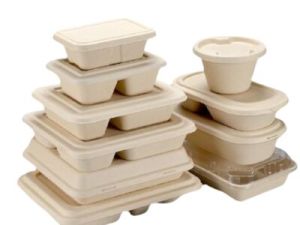In recent years, the food service industry has been increasingly challenged to address its environmental impact. One significant area of concern has been the packaging used for takeaway meals and snacks. Traditional packaging materials, often made from plastic or non-biodegradable materials, contribute significantly to environmental degradation and waste accumulation. In response to these challenges, compostable takeaway packaging has emerged as a promising solution, redefining sustainability standards within the food service sector. Compostable packaging refers to materials that can break down naturally into non-toxic components, supporting the growth of plants and leaving no visible or toxic residue. Unlike conventional plastics, which can persist in the environment for hundreds of years, compostable materials offer a sustainable alternative that reduces both landfill waste and marine pollution. The materials used in compostable packaging can vary but include bioplastics derived from renewable resources such as cornstarch or sugarcane, as well as natural fibers like bamboo or palm leaves. The benefits of compostable takeaway packaging extend beyond environmental stewardship.
They align with the growing consumer demand for eco-friendly products and demonstrate a commitment to corporate social responsibility. Businesses that adopt compostable packaging not only reduce their carbon footprint but also enhance their brand reputation by appealing to environmentally conscious consumers. Moreover, compostable packaging supports the circular economy by closing the loop on waste management. After use, these materials can be collected along with food scraps and other organic waste, then processed into nutrient-rich compost. This compost can subsequently be used to enrich soil for agriculture or landscaping, completing a sustainable cycle that minimizes waste and preserves natural resources. The adoption of compostable packaging, however, is not without its challenges. Cost considerations, operational logistics, and local composting infrastructure are factors that businesses must navigate when transitioning away from traditional packaging materials. Despite these challenges, the long-term benefits of compostable packaging in terms of environmental impact and consumer perception often outweigh initial implementation hurdles. Looking ahead, the future of compostable takeaway packaging appears promising as technological advancements continue to improve material durability, flexibility, and affordability.
 From an industry perspective, governments and regulatory bodies play a crucial role in incentivizing the adoption of compostable packaging through policies that promote sustainable practices and provide financial support for research and development. Additionally, partnerships between food service businesses, packaging suppliers, and waste management companies can foster innovation and streamline the composting process, making it more accessible and cost-effective for all stakeholders involved. Innovations such as bio-based coatings to enhance moisture resistance and heat tolerance are expanding the range of applications for compostable materials in food packaging. Compostable takeaway packaging represents a significant step towards redefining sustainability in the food service industry. By reducing reliance on non-biodegradable materials and promoting a circular economy approach to waste management, businesses can not only meet consumer expectations but also contribute to global efforts towards environmental conservation. As awareness grows and technology evolves, compostable takeaway packaging is poised to become the standard for sustainable practices in food service, paving the way for a more environmentally responsible future.
From an industry perspective, governments and regulatory bodies play a crucial role in incentivizing the adoption of compostable packaging through policies that promote sustainable practices and provide financial support for research and development. Additionally, partnerships between food service businesses, packaging suppliers, and waste management companies can foster innovation and streamline the composting process, making it more accessible and cost-effective for all stakeholders involved. Innovations such as bio-based coatings to enhance moisture resistance and heat tolerance are expanding the range of applications for compostable materials in food packaging. Compostable takeaway packaging represents a significant step towards redefining sustainability in the food service industry. By reducing reliance on non-biodegradable materials and promoting a circular economy approach to waste management, businesses can not only meet consumer expectations but also contribute to global efforts towards environmental conservation. As awareness grows and technology evolves, compostable takeaway packaging is poised to become the standard for sustainable practices in food service, paving the way for a more environmentally responsible future.